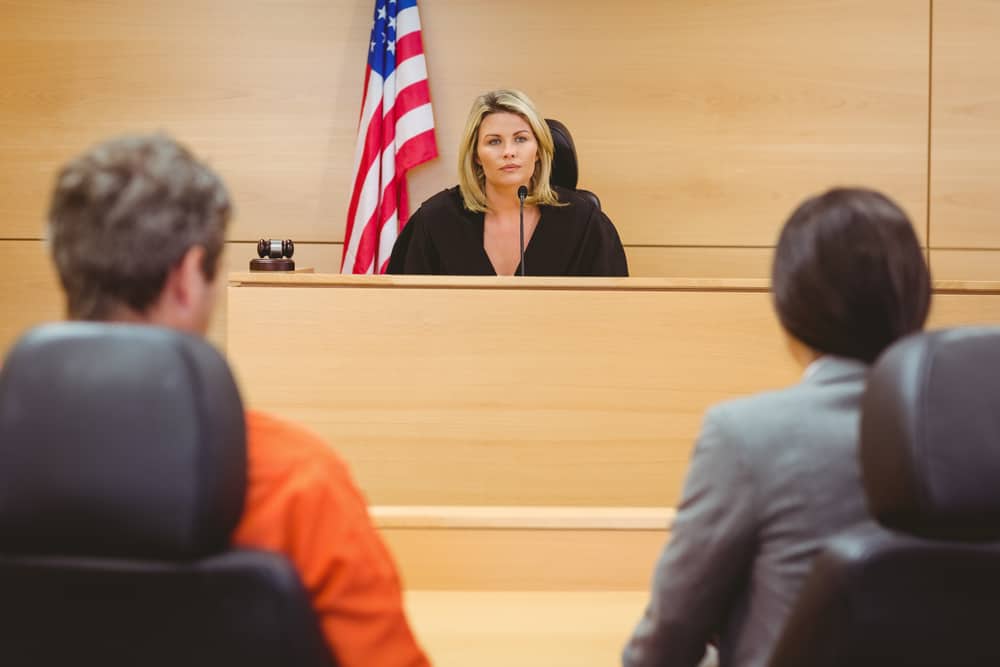Well, most analyses of the criminal justice system usually highlight the formal aspects of legal administration, but discretion also plays a big part.
Discretion means acting on one’s personal authority and common sense.
In law, discretion in association with legal rulings, such as whether specific evidence is excluded at a trial, can be executed by a judge. Some consider discretion mainly negative, while others view it as something positive. You can encounter it at all levels of law enforcement.
It’s been called “The Art Of Suiting The Action To Particular Circumstances.”
Furthermore, people with a position in power can use it to apply and exercising that power. Below, I will discuss discretion in criminal justice and why it is essential, so let’s dive right into it!
What is Discretion in Criminal Justice?
In the criminal justice system, discretion represents the ability of a judge to decide how, where, and with what severity to sentence someone who’s been convicted.
A person considers their options and determines which to use, whether it is a police officer arresting a criminal on the street, evicting them from their home, or anywhere in between.
Some people argue that using discretion weakens or overrules the rule of law.
However, since laws can’t be written without implementing discretion, the rule of law serves to conduct it towards norms, societal expectations, and, at least partially, public interest.
How Does Discretion Work in The Criminal Justice System?
“Crime” is defined as something that’s by law, restricted or banned and enforced via different punishments. However, where law ends and discretion starts lies in implementing those laws.
The police officers have the task of enforcing these laws. However, they also have the police discretion of when to file different charges and arrest people.
Take traffic violations and the police department, for example; the officer can issue a warning instead of arresting someone. You can find discretion in all system stages, including police rulemaking, parole supervision, etc.
The victim also has the discretion to implement self-defense and report the crime if provided with the opportunity. Victims can also decide not to pursue charges. After significant observations, the dispatch officer determines the importance of the call.
Then, the police officer addressing the situation can exercise discretion, question witnesses, and detain potential suspects.
How Does Discretion Work for Suspects/Accused?
The suspects or accused can get a lawyer, decide how to plead and accept a plea bargain.
What About Prosecutors?
The prosecutor has the choice, also known as prosecutorial discretion, to either prosecute a case or leave the charges and suggest plea bargains. So they play a key role in the criminal justice system.
The trial judge also has discretion every time new evidence or objection arises. Moreover, the juries have discretion over the final verdict, guilty plea decisions, and sentencing in general.
These few examples represent only a tiny portion of the many decisions that make criminal law. Overall, prosecutors have a significant role in any criminal justice process.
They can initiate as well as terminate criminal prosecutions. They also have to apply discretion to weigh both the rights of the accused and the victim’s feelings, as well as the capacity of prisons when determining a proper punishment.
Finally, prosecutors manage plea bargains. Therefore, they have probably the most discretion-based part in the criminal justice responses. For example, suppose they strongly believe someone deserves prison time. In that case, they will select that path, knowing that prisons work at full capacity, leading to the accused being released earlier without serving their complete sentence.
Why is Discretion Important in Criminal Justice?
Discretion plays a vital part in the criminal justice system. It’s the power of officials to take actions according to the dictates of their common sense and conscience.
Discretion in the criminal justice system is crucial because it helps the people in charge keep the public safe from those who break the law.
Although it’s a vital part of the system, discretion can be abused when the judicial action is fanciful, arbitrary, or makes no sense.
If the defense counsel believes that the trial court judge has taken advantage of the discretion, they can file for an appeal. Then, the appellate judge is responsible for reviewing whether the trial court judge has taken proper legal actions and followed the law.
If a reasonable person could recognize the propriety of the actions of trial courts, then it can’t be claimed that they abused their discretion.
Discretion can enable defense attorneys, prosecutors, judges, and juries to add sentencing policies in line with their personal views, even if they oppose formal law.
Final Verdict
Discretion starts with labeling a specific action as criminal. It’s followed by different subsequent choices made by other participants in the criminal justice system, such as police officers, prosecutors, judges, juries, etc.
The result of these actions is individual personal judgment in both a collective and organizational sense. This happens because the structure of the system is bureaucratic.
And structures of this kind aren’t left unsupervised. On the contrary, they’re governed by many formal rules that are informally applied.
Furthermore, how regulations, rules, and the law are generally implemented is decided by the role view of the implementers, demographic traits, and ideological orientation.
It’s essential to discuss discretion in the criminal justice system because understanding its downsides and achievements will enable better regulation.
Opinion
Most decisions are unreviewable and therefore have the potential to be capricious and arbitrary. And that’s a significant downside. Additionally, I think that many important decisions are impacted by the personal values, purposes, and goals of the different units within the criminal justice system.
Furthermore, the public and politicians also affect these decisions through their interactions with one another and the system. These interactions aren’t unusual in a democratic society where law ensures a basis for action. However, they don’t define it.
Therefore, a deeper analysis of discretion in each unit of the criminal justice system should be a part of the research methodology for public safety.



